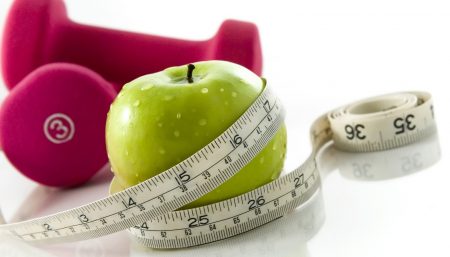
Even though there has been a huge resurgence in the interest in low carbohydrate/high protein diets, the low carb vs. high carb issue is still the subject of much controversy. Is the low carb/high protein diet the best way for bodybuilders to get ripped or just another fad? From a bodybuilding standpoint, the answer is an unequivocal yes; reducing carbohydrates really works! Most bodybuilders can’t get that “ripped” look without some degree of carb restriction.
Why does dropping your carbs help you lose more fat?
- Eating less carbohydrates forces your body to burn fat for fuel instead ofsugar. Reducing carbs and increasing protein accelerates fat loss by controlling your insulin and blood sugar more effectively.
- The high protein intake speeds up your metabolism because of the “thermic effect” of protein food. It also helps eliminate water retention, giving you the “hard” and “dry” look you need onstage to win contests.
However, a moderate carb diet, with slight carb restriction (especially at night) is the most effective way for bodybuilders to get ripped. A diet comprising of 175 -200 grams of carbs is advisable with most of the carbs eaten early in the day. Every 4th day, you can have a high carb day (350 grams) to replenish your depleted glycogen stores. With 175 – 200 grams of carbs, that is just enough fuel to provide the energy and to prevent muscle loss.
Problems with low carb diet
 However it is not advisable to drop carbohydrate further to 30 or 50 grams a day (like many fad diets recommend) to get more ripped or to get ripped faster? Because, without carbs, you’ll have no energy to train hard. Sure, tuna fish and water will get you ripped all right, but if your workouts suffer because your diet is “killing you,” you aren’t going to look or feel your best.
However it is not advisable to drop carbohydrate further to 30 or 50 grams a day (like many fad diets recommend) to get more ripped or to get ripped faster? Because, without carbs, you’ll have no energy to train hard. Sure, tuna fish and water will get you ripped all right, but if your workouts suffer because your diet is “killing you,” you aren’t going to look or feel your best.
Another big problem caused by very low carb diets is loss of lean body mass. The lower you drop your carbs, the more likely you are to lose muscle along with the fat.
A third problem with very low carb diets is the rebound effect. The lower you drop your carbs, the faster you will rebound and gain the fat back when you add the carbs back in.
Nutrition is a highly individual issue. Some people can’t seem to lose weightunless they reduce their carbohydrate intake. Other people can eat bagels and pasta all day long and they have six pack abs. How many carbs you eat therefore, depends on your body type. Are you an endomorph or an ectomorph? Do you have a fast metabolism or a slow metabolism? Are you naturally lean or naturally heavy? Depending on your genetics, you might thrive on high carbs or you might need a high protein, low carb diet to get results. But beware: even if you think you are the carb sensitive, slow-metabolism type, the middle path (moderate carb restriction) is the most sensible way to go.
The only way to determine how many grams of carbs is right for you is to experiment until you find your “critical level.” If you start dropping body fat rapidly at 200 grams a day, then why on earth would you subject yourself to the torture of going even lower and doing one of those 30-40 grams a day “ketogenic” diets?
Remember, there is no single diet that works for everyone.
If you want to get ripped, you should also pick the type of carbohydrates you eat carefully – it’s not just the quantity, it’s the quality. In addition to moderating total daily carb intake, try getting off all processed carbs including bread, crackers, pretzels, pasta, bagels and switching only to natural, unprocessed carbs like vegetables, oatmeal, yams, rice, potatoes, etc. That single change will go a long way in helping you get leaner (and healthier too!)
The bottom line is that it’s not correct to say, “carbs are fattening,” but there is some truth to the assertion that a low carb diet will get you leaner compared to a high carb diet – you just have to approach it in a sensible and individualized way.
Disclaimer
The Content is not intended to be a substitute for professional medical advice, diagnosis, or treatment. Always seek the advice of your physician or other qualified health provider with any questions you may have regarding a medical condition.



